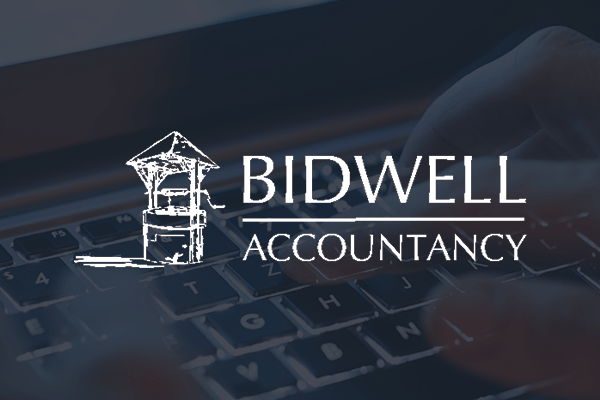December Newsletter

This last newsletter of 2023 brings you a mix of updates including a topical explanation of fiscal drag, something that might be useful in explaining some of the effects of the recent budget on our wallets. The changes announced in Capital Gains Tax might have a significant impact if you are planning on making changes to any chargeable assets - sooner might be better here so please talk to us if this affects you. Benefits, cost of living and the state pension were all mentioned in the budget so we’ve included more on those below. All National Living Wage bands will increase from April next year so you’ll need to factor these in with your payroll and business planning for 2023/24. As ever, our news concludes with important dates for your diary, including self-assessment tax returns by the end of January 2023 of course.
We wish you and yours a peaceful and happy festive break and look forward to supporting you again during 2023. If you need any advice or further assistance, please do get in touch in the usual ways.
Fiscal drag
What is fiscal drag?
The Oxford dictionary defines it as:
‘The deflationary effects of a progressive taxation system on a country’s economy. As wages rise, a higher proportion of income is paid in tax’
The recent comments made by the Chancellor in the Autumn Statement, froze most Income Tax allowance and rates at current levels until 2028.
This means that wage earners who receive pay increases until April 2028, to try and keep spending power intact, will pay income tax on any increase. In certain circumstances, they may also see their taxable income boosted into the 40%, or 45%, Income Tax bands.
If wage increases continue to lag behind inflation, then wage earners will suffer a double hit to their spending power in coming years.
Capital Gains planning
Readers may have noted that the Chancellor announced a significant reduction in the annual Capital Gains Tax allowance, currently £12,300, from April 2023.
It is reducing to £6,000 from April 2023 with a further reduction to £3,000 from April 2024.
Taxpayers who are contemplating the disposal of a chargeable asset next year, which will create significant chargeable gains, should consider organising these disposals before, rather than after, 5 April 2023; unless they have already crystalised gains during 2022-23 and fully used their £12,300 tax-free allowance.
And don’t forget, married couples and civil partners both qualify for the £12,300 allowance in which case organising joint ownership of these assets before disposal may be beneficial.
Uprating benefits and cost of living payments
Changes to these support payments were announced in the Autumn Statement last month. They include:
- State Pension - will increase in line with inflation.
- Cost of living payments - the government will provide households on means-tested benefits with an additional £900 Cost of Living payment in 2023-24. Pensioner households will receive an additional £300 Cost of Living payment, and individuals on disability benefits will receive an additional £150 Disability Cost of Living payment in 2023-24. These payments will be made on a UK-wide basis.
- Uprating of benefits - the government is protecting the most vulnerable in society by increasing benefits in line with inflation, measured by September CPI which is 10.1% this year. Around 19 million families will see their benefit payments increase from April 2023. This includes increasing the State Pension by inflation, in line with the commitment to the Triple Lock. The standard minimum income guarantee in Pension Credit will also increase in line with inflation from April 2023 (rather than in line with average earnings growth). This will ensure pensioners on the lowest incomes are protected from inflation and do not lose some of their State Pension increase in the Pension Credit means test. Some disability benefits are devolved in Scotland, so it is for the Scottish Government (SG) to decide uprating. Department for Work and Pensions (DWP) benefits are fully devolved in Northern Ireland, so it is for the Northern Ireland Executive to decide uprating in Northern Ireland.
National Living Wage changes from 1 April 2023
Employers will need to update their systems to reflect the changes in the National Living and Minimum Wage rates from 1 April 2023.
They are:
- Increasing the National Living Wage for those aged 23 and over by 9.7% to £10.42 an hour;
- Increasing the rate for 21-22-year-olds by 10.9% to £10.18 an hour;
- Increasing the rate for 18-20-year-olds by 9.7% to £7.49 an hour;
- Increasing the rate for 16-17-year-olds by 9.7% to £5.28 an hour;
- Increasing the apprentice rate by 9.7% to £5.28 an hour; and
- Increasing the accommodation offset rate by 4.6% to £9.10 an hour.
As this will increase the payroll costs of affected business owners these changes will need to be factored into business plans for 2023-24.
Tax Diary December 2022/January 2023
1 December 2022 - Due date for Corporation Tax payable for the year ended 28 February 2022.
19 December 2022 - PAYE and NIC deductions due for month ended 5 December 2022. (If you pay your tax electronically the due date is 22 December 2022).
19 December 2022 - Filing deadline for the CIS300 monthly return for the month ended 5 December 2022.
19 December 2022 - CIS tax deducted for the month ended 5 December 2022 is payable by today.
30 December 2022 - Deadline for filing 2021-22 self-assessment tax returns online to include a claim for under payments to be collected via tax code in 2023-24.
1 January 2023 - Due date for Corporation Tax due for the year ended 31 March 2022.
19 January 2023 - PAYE and NIC deductions due for month ended 5 January 2023. (If you pay your tax electronically the due date is 22 January 2023).
19 January 2023 - Filing deadline for the CIS300 monthly return for the month ended 5 January 2023.
19 January 2023 - CIS tax deducted for the month ended 5 January 2023 is payable by today.
31 January 2023 - Last day to file 2021-22 self-assessment tax returns online.
31 January 2023 - Balance of self-assessment tax owing for 2021-22 due to be settled on or before today unless you have elected to extend this deadline by formal agreement with HMRC. Also due is any first payment on account for 2022-23.

Unit 157, Milton Keynes Business Centre,
Foxhunter Drive, Milton Keynes,
Buckinghamshire, MK14 6GD
Bidwell Accountancy




